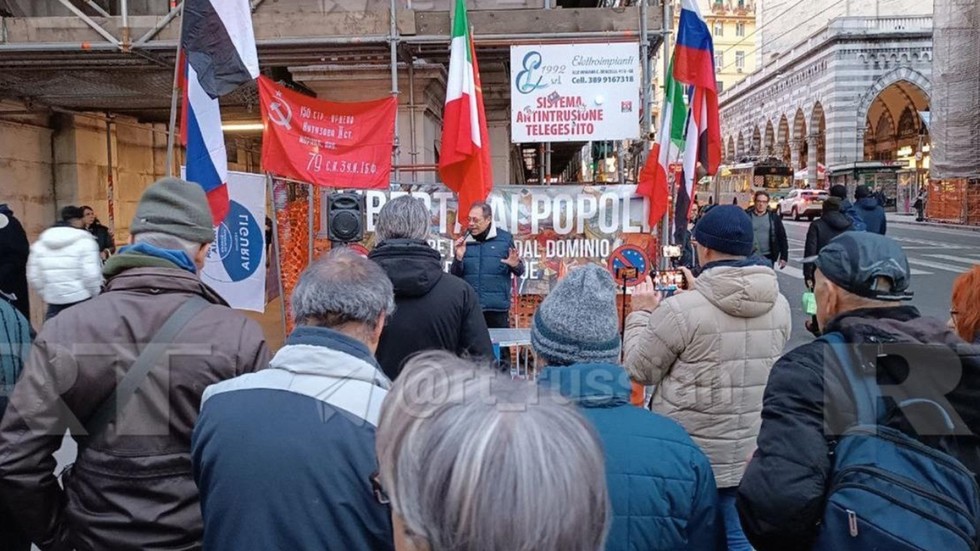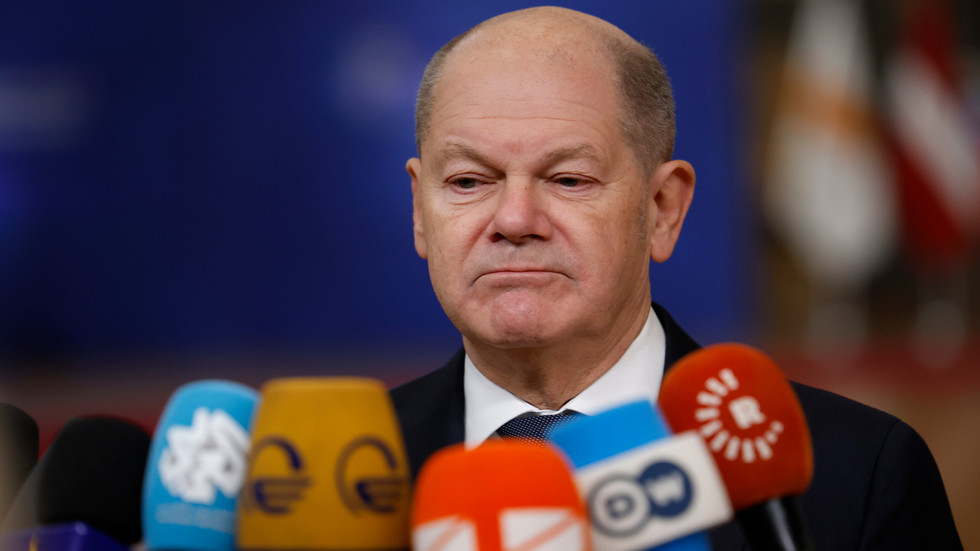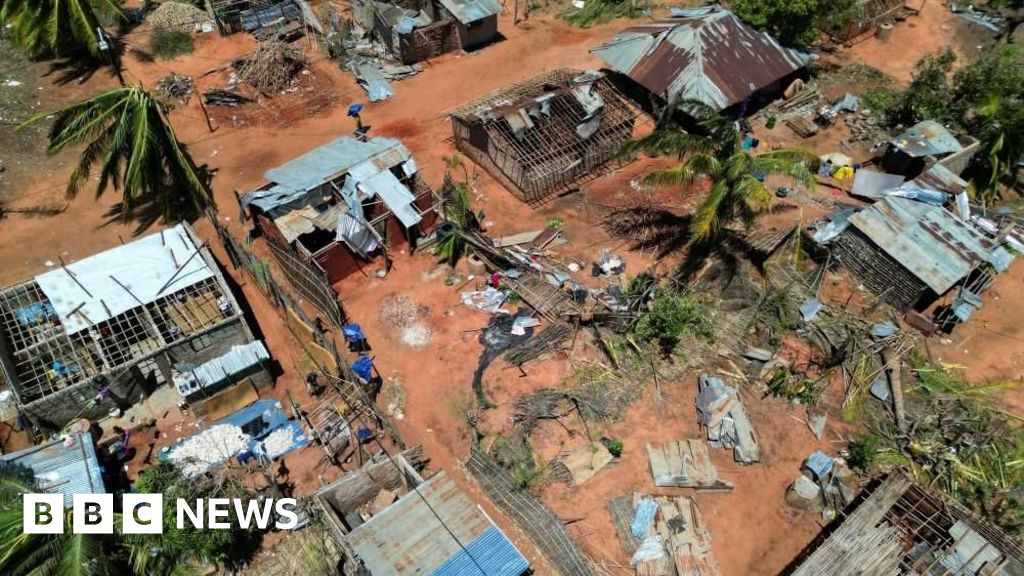As
Ukrainian troops
began to push the Russians back from the outskirts of the city of
Kharkiv
in May 2022,
Gamlet Zinkivskyi
, a
street artist
who knows how to shoot as well as paint, was eager to fight for his hometown. So Zinkivskyi, who had frequented firing ranges before the war, joined a
volunteer unit
defending the city. But the battalion's leader had other plans for him.
"Gamlet, just pick up your paintbrush, and go paint in the street," Vsevolod Kozhemiako, the commander of Khartiia battalion, recalled telling him.
"Because the power of his art is much stronger than him taking a gun and assaulting or defending trenches. His art could empower those defending the city."
Although sceptical, Zinkivskyi obliged and began
painting
in Kharkiv's bombed-out and deserted streets, wearing a bulletproof vest where he tucked his tools. One of his first works, on a plywood panel covering a smashed door at City Hall, featured Molotov cocktails - a nod to the homemade weapons residents prepared to defend Kharkiv. "Hellish hospitality," he wrote on the mural.
Soon, he said, soldiers would stop and tell him, "Gamlet, we love your work - keep going!" He added, "That's when I understood how much people needed it." The positive response prompted Zinkivskyi, 34, to paint dozens more
murals
in cities across eastern Ukraine, capturing the realities of wartime, from blood donors to lines of people receiving food to the exhaustion gripping civilians.
Born to a journalist mother and a father who worked as an architect and jeweler, Zinkivskyi was immersed in culture from a young age. At university, he adopted the nickname Gamlet, the transliteration of Hamlet in Russian, because he often recited the play's soliloquies.
With more than 100 of his murals appearing on building facades, gates and windowsills, Zinkivskyi's work has become an integral part of the city.
To depict the mass exodus from Kharkiv early in the war, he painted sets of keys with the caption: "The keys miss their doors." Another mural shows a soldier's gear - a helmet, flak jacket and rifle - which he called the "amulets of modernity."
Not all his murals have met with approval. One that suggested to war-weary civilians that their fatigue pales in comparison to sacrifices of soldiers set off a backlash online. Some also call his work depressing.

 3 months ago
24
3 months ago
24









